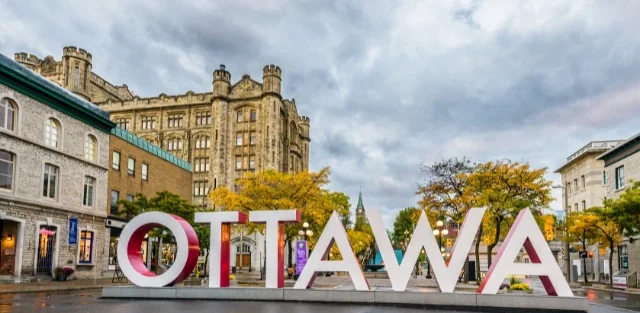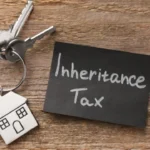The annual tax season can often feel overwhelming, but for Ottawa residents, smart planning can lead to maximum returns. As your trusted experts, AI Tax Consultants is here to help you with important deductions and credits specific to the Capital Region and the province of Ontario. Understanding these essential tips, with a focus on Ottawa taxes, ensures you keep more of your hard-earned money.
1. Harness the Power of Provincial Credits
As an Ontario resident, you have access to valuable provincial credits administered through the federal return. So, always apply for them, even if you have no income to report, as they can result in payments. This includes the Ontario Trillium Benefit (OTB), which combines payments from three credits: the Ontario Energy and Property Tax Credit (OEPTC), the Northern Ontario Energy Credit (for eligible individuals), and the Ontario Sales Tax Credit. Specifically, the OEPTC helps low- to moderate-income individuals with property taxes and energy sales taxes, making it necessary for both renters and homeowners to claim it by completing Form ON-BEN. Additionally, the Low-Income Individuals and Families Tax Credit (LIFT) is a refundable credit that provides relief from Ontario personal income tax for low-income workers.
2. Optimize Home and Accessibility-Related Claims
For many Ottawa families, housing costs are a major financial consideration. As a result, it’s important to know how to claim housing-related benefits. If you’re saving for your first home, contributions to a First Home Savings Account (FHSA) are generally deductible on your tax return, just like an RRSP, and withdrawals to purchase a first home are not taxable, just like a TFSA. Additionally, if you pay for qualified home renovations to improve the safety and accessibility of a residence for a person eligible for the Disability Tax Credit or a senior living with you (age 65 or older), you may be able to claim the Home Accessibility Tax Credit (HATC). Additionally, if you completed renovations to create a secondary unit for a senior or adult with a disability, you may be able to claim a portion of the renovation costs using the Multigenerational Home Renovation Tax Credit (MHRTC).
3. Maximize RRSP and TFSA Contributions
No discussion of maximizing returns is complete without mentioning registered savings plans. Plus, strategically planning your contributions can yield significant savings. Contributions to a registered retirement savings plan (RRSP) reduce your taxable income, offering an immediate tax break, so maximize your contribution before the deadline (usually 60 days into the new year) to reduce the amount of tax you pay. While contributions to a tax-free savings account (TFSA) are not deductible, all investment growth and withdrawals are tax-free. Therefore, using both an RRSP and a TFSA is key to a comprehensive long-term tax strategy.
4. Don’t Overlook Common Deductions & Credits
In addition to housing and savings incentives, several common deductions and non-refundable tax credits can significantly reduce your final tax bill. In particular, make sure you keep receipts for eligible medical expenses, especially if they are substantial. Also, remember that charitable donations offer a generous tax credit, which is often more valuable once your total donations exceed $200 at the provincial level. You can also claim a non-refundable tax credit for interest paid on government student loans. Finally, child care expenses are a deduction that reduces your taxable income, not just a credit, making them very valuable.
Take Action Now
The secret to maximizing your Ottawa tax return isn’t just about filing on time. It’s about careful preparation and expert knowledge of all the available options. So, start gathering your documents today, from T-slips to property tax and eligible expense receipts. Don’t leave money on the table. Consult with the professionals at AI Tax Consultants to ensure every eligible deduction and credit is claimed, securing the best possible return for your family.
(FAQs)
1. What is the Ontario Trillium Benefit (OTB), and how do I claim it as an Ottawa resident?
The OTB is a payment that combines the Ontario Energy and Property Tax Credit (OEPTC), the Northern Ontario Energy Credit, and the Ontario Sales Tax Credit. As an Ottawa resident, you claim the OTB by completing Form ON-BEN when you file your personal income tax return. You must file a return, even if you have no income, to receive this refundable benefit, which can provide financial relief for property tax and energy costs.
2. Can I use both the First Home Savings Account (FHSA) deduction and the Home Buyers’ Plan (HBP) for my first home in Ottawa?
Yes, you can use both! The FHSA allows you to contribute up to $8,000 annually (and $40,000 lifetime limit) with contributions being tax-deductible (reducing your current taxable income), and withdrawals for a first home are tax-free. The HBP allows you to withdraw up to $35,000 from your RRSP tax-free (which must be paid back). Both tools can be used toward the purchase of the same qualifying home.
3. What is the benefit of the Home Accessibility Tax Credit (HATC) for homeowners in Ottawa? The HATC is a non-refundable tax credit for up to $20,000 of eligible expenses for renovations that improve the safety or accessibility of a home for an individual eligible for the disability tax credit or a senior (age 65 or older) living in the home. This credit is specifically helpful for multi-generational families in Ottawa making necessary, costly home modifications.





